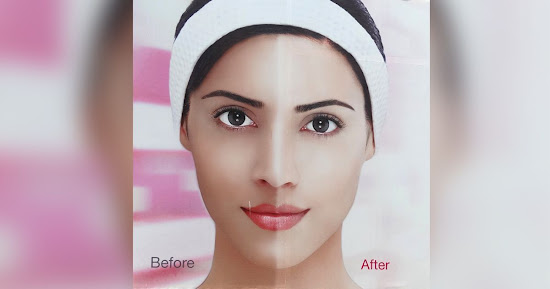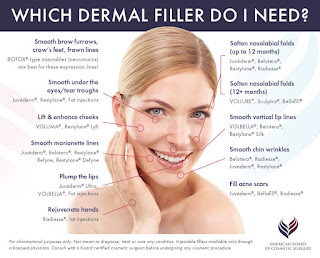kin whitening, also known as skin lightening and skin bleaching, is the practice of using chemical substances in an attempt to lighten the skin or provide an even skin color by reducing the melanin concentration in the skin. Several chemicals have been shown to be effective in skin whitening, while some have proven to be toxic or have questionable safety profiles. This includes mercury compounds which may cause neurological problems and kidney problems.
Skin lightening, or skin bleaching, is a cosmetic procedure that aims to lighten dark areas of skin or achieve a generally paler skin tone. It's usually used to improve the appearance of blemishes such as birthmarks and dark patches (melasma). Skin-lightening procedures work by reducing the concentration or production of melanin in the skin. Melanin is the pigment that gives skin its colour and helps protect it from the sun.
The main techniques used to lighten the skin include:
skin-lightening creams
laser treatment
Facial peels like retises ct yellow peel
Trying a skin-lightening procedure is a major decision. It can be expensive, time-consuming, and the results cannot be guaranteed. If you're thinking of going ahead, be absolutely sure about your reasons for wanting to try it and do not rush into it. It's a good idea to discuss your plans with a GP first. They might talk to you about your reasons for wanting to lighten your skin, and there might be a medical reason why the procedure is not appropriate for you. Skin-lightening techniques can result in serious side effects and complications. People with dark skin tones are particularly at risk of these problems.
Skin-lightening creams including sesderma yellow peel
Prescription skin-lightening creams
Powerful skin-lightening creams are available on prescription from a doctor. These usually contain one or both of the following medicines:
hydroquinone
corticosteroids (steroid medicine), such as hydrocortisone
Skin whitening: Skin Whitening What is it and what are the risks
Skin whitening products often contain ingredients that are toxic when used cosmetically for long durations and without medical guidance as they have the ability not just to damage your skin but cause life-threatening ailments.
The chemicals used to lighten skin vary greatly worldwide and are constantly evolving, with antioxidants such as glutathione, as well as vitamin C and collagen now available to inject -- most of which are unproven and often unsafe.
However, three ingredients dominate harmful skin whitening products worldwide and are heavily regulated in most countries -- but they remain widely available, and misuse or prolonged use can be toxic to your health.
Skin whitening products have evolved from freckle removers and skin bleaches, to whiteners and lighteners as the culture and conversations around skin color have changed, but their production and sale have persisted as demand has not waned. Skin whiteners can be bought everywhere from small stores, supermarkets and high-end clinics, to markets, third-party websites, social media platforms and even directly from people's homes.
As such, manufacturers range from large multinational corporations to community-based chemists.
Women in India are developing steroid dependencies in pursuit of fairer skin. Authorities are failing to enforce restrictions to prevent this.
The market - which includes creams, face washes, deodorants, even a vaginal whitener - is estimated to be worth about 270 billion rupees ($4 billion) and is growing at a steady clip. Unilever Plc's Hindustan Unilever, Procter & Gamble, Nivea, Garnier and Emami are among those making fairness products.
Now the industry has come under fire after a popular Bollywood actor lashed out at India's obsession with fair skin and highlighted a persistent bias against darker faces.
"You have to stop buying into the idea that a particular shade is better than others," Abhay Deol, an actor known for playing offbeat roles, said on his Facebook page this month.
Deol lambasted his Bollywood peers - including Shah Rukh Khan, John Abraham, Shahid Kapur and Deepika Padukone - for endorsing so-called fairness brands and urged them to stop using their popularity to peddle products he called racist.
Some activists link the bias to an entrenched caste system, where higher-caste Brahmins generally have lighter skin. In a country where arranged marriages are still the norm, matrimonial ads consistently describe a woman's complexion, and dark-skinned women often pay a higher dowry, activists say.
Bullying and taunting of dark-skinned girls and women is common, while dark-skinned actors complain of fewer roles.
Advertising campaigns for various brands have typically depicted women - and increasingly men - as winning better jobs and partners, thanks to the fairness creams.
But Kiran Khalap, co-founder of brand consultancy Chlorophyll in Mumbai, said the adverts were not to blame.
"Our obsession with fair skin didn't come from HUL or Emami: it's a deep-seated cultural bias that equates being fair with being superior," he told the Thomson Reuters Foundation.
"When a demand for a product exists, a manufacturer will cater to that demand. And people will buy that product, even without a Shah Rukh or a John Abraham telling them to buy."
DARK IS BEAUTIFUL
Nor is India alone in buying into the 'fairness' dream.
Similar products are on sale in Southeast Asia, the Middle East and in parts of Africa, although India, with its population of 1.3 billion people, is a prized consumer market.
Ivory Coast and Ghana have banned cosmetics containing hydroquinone, which critics say can cause cancer. A similar ban exists in Japan, South Africa and the European Union. however,
Nivea recently pulled an ad in the Middle East with the tagline 'White is Purity' after it was slammed as racist.
Advocacy group Women of Worth launched a 'Dark is Beautiful' campaign in 2009 with the tagline 'Stay unfair, stay beautiful,' to fight the "toxic belief that a person's worth is measured by the fairness of their skin".
Members of India's upper house have called for a ban on advertisements for fairness products.
There has also been legal action.
A Delhi consumer court said in 2015 said Emami's advertisements for Fair and Handsome were a misrepresentation of the product's effectiveness.
profits?


Comments
Post a Comment